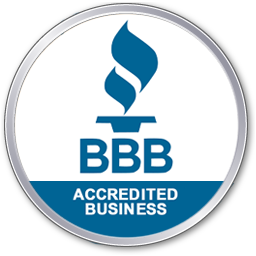Roughly 4% of U.S. homes use heating oil systems as their primary fuel for space heating, according to the U.S. Energy Information Administration (EIA). While this number is small compared to the amount of households that use electricity or natural gas for heat, residential heating oil sales surpassed 3 billion gallons in 2020, and another 2 billion gallons were consumed by the commercial sector.
Heating oil systems store oil in a tank, where it’s pumped to a burner or furnace. The heat turns the oil into a fine mist that mixes with the air, and the mixture is then ignited in a combustion chamber to heat either the air in your furnace or the water in your boiler, depending on the type of system you have.
Heating oil systems have many benefits for homeowners. They’re extremely safe, efficient and have a long lifespan. But unfortunately, they also come with their downsides.
Heating oil tanks can corrode, leading to oil leaks in your soil or yard. There may also be leaks in worn-out fittings, hose connections and filters associated with your tank. Oil in soil can be hazardous, especially if it leaks into your groundwater. It can also be a big liability, as you could be cited for multiple environmental violations.
If your heating oil tank is stored above ground, you should occasionally inspect it to make sure you don’t see stray oil on or around the tank. Some tell-tale signs that your heating oil tank might be leaking include:
- A constant smell of oil
- Oil sheen in water surrounding your tank
- Dead vegetation above or near the tank
- Oil stains
- An unexplained increase in heating costs
How To Know If You Have An Oil Tank Leak
Recognizing an oil leak in an underground heating oil tank, however, is more complicated and easier to miss. If your heating oil tank is buried, a comprehensive tank sweep can help to locate it and evaluate its condition and the level of contamination in the soil.
You can also have soil near your underground tank sampled to test it for oil, get insight into the leak’s location and receive an estimate for how long your tank has been leaking. Depending on the condition of your heating oil tank, it may need to be permanently decommissioned, removed or replaced.
Here, we’ll cover why heating oil tank leaks and oil in soil are problematic and how contaminated soil can be remediated.
What Effects Does an Oil Spill Have on Soil?
Heating oil tank leaks or spills are bad for both your property and the overall environment. Oil in soil can affect the health of your plants, pets, wildlife and nearby waterways. The harmful effects of oil in soil typically come from an increased level of heavy metals in your soil, which may include:
- Magnesium
- Sulfur
- Lead
- Arsenic
- Mercury
When these metals are abundant on your property, they run the following risks.
- Human exposure: Oil can break down into a toxic substance that could affect you while gardening, digging or playing in your yard.
- Plant life: Oil in soil can kill nearby plants and grass and prevent the growth of new vegetation. It can also kill trees by contaminating their roots.
- Animals and pets: Local wildlife and pets may drink groundwater contaminated with oil. This polluted water may also be absorbed by fish if it makes its way into nearby rivers and lakes.
- Groundwater: Aside from harming wildlife, oil in your groundwater can be harmful for homes that use wells in place of municipal water systems.
- This could affect your drinking water or a neighbor’s, which could lead to costly lawsuits.
How Long Does Soil Contamination Last?
Even for a relatively small leak or spill, oil can remain in soil for decades, typically 20-30 years. While it tends to stay contained near the source, it can be carried elsewhere in your area through groundwater. Many oil types are lighter than water, which means the oil typically stays on the surface, making it more likely to be carried away.
Even though heating oil in soil will eventually be broken down by bacteria and fungi, it can continue to affect plants and wildlife for as long as it’s present. This is why it’s important to have contaminated soil assessed and remediated as swiftly as possible.
How Long Does Soil Remediation Take?
The amount of time it takes to remediate soil contaminated with oil can be as little as one to two days or longer. The length of time depends on the size of the leak or spill, where it’s located and how deep it is.
The first step in soil remediation is to conduct an assessment to determine how much oil is in the soil, how long it has been there and its associated environmental risks. Once this assessment is complete, the soil can be remediated through the following methods set by the Oregon Department of Environmental Quality (DEQ).
- Soil matrix cleanup: This remediation method typically removes most – if not all – of the contaminated soil at a heating oil tank cleanup site so that the amount of oil present is less than the allowable level as defined by the DEQ.
- The affected soil is then transported to a properly accredited landfill. Soil matrix cleanup may also involve covering low-impact sites where limited contamination is present.
- Risk-based decision making cleanup: This process potentially allows closure with some of the heating oil remaining in a property’s soil if it can be proven by DEQ regulations that leaving it will not impact human or environmental health.
- These types of tank cleanups are often used when it’d be too costly or impossible to remove all of the contamination or if removing the soil would impact structures.
- General remedy cleanup: General remedy cleanup is a risk assessment for low-impact heating oil tank contamination sites. It allows a larger amount of oil to be left in the soil if it’s covered by at least three feet of clean soil, has a volume of less than 65 cubic yards and has been analyzed for the toxic compounds benzene, ethylbenzene and naphthalene.
- *There also can’t be any oil in nearby groundwater, an oversaturation of oil or ecological risk.
Soil decontamination must meet specific state and local regulations, including where the contaminated soil is disposed of if it’s removed. Because soil remediation can be a complex process with difficult-to-understand rules, it’s important to hire professionals that have years of experience with heating oil tank leaks to help you stay compliant.
Soil Decontamination in Portland
Soil contaminated with oil from a heating oil tank is a problem that shouldn’t be ignored for the benefit of both your property and the local environment.
If you suspect your heating oil tank may be leaking, you are unsure whether you have an old heating oil tank buried somewhere in your yard or you have contaminated soil that needs to be remediated, the professionals at Alpha Environmental can help.
Contact us online or call us at 503-292-5346 today for your soil decontamination needs!




